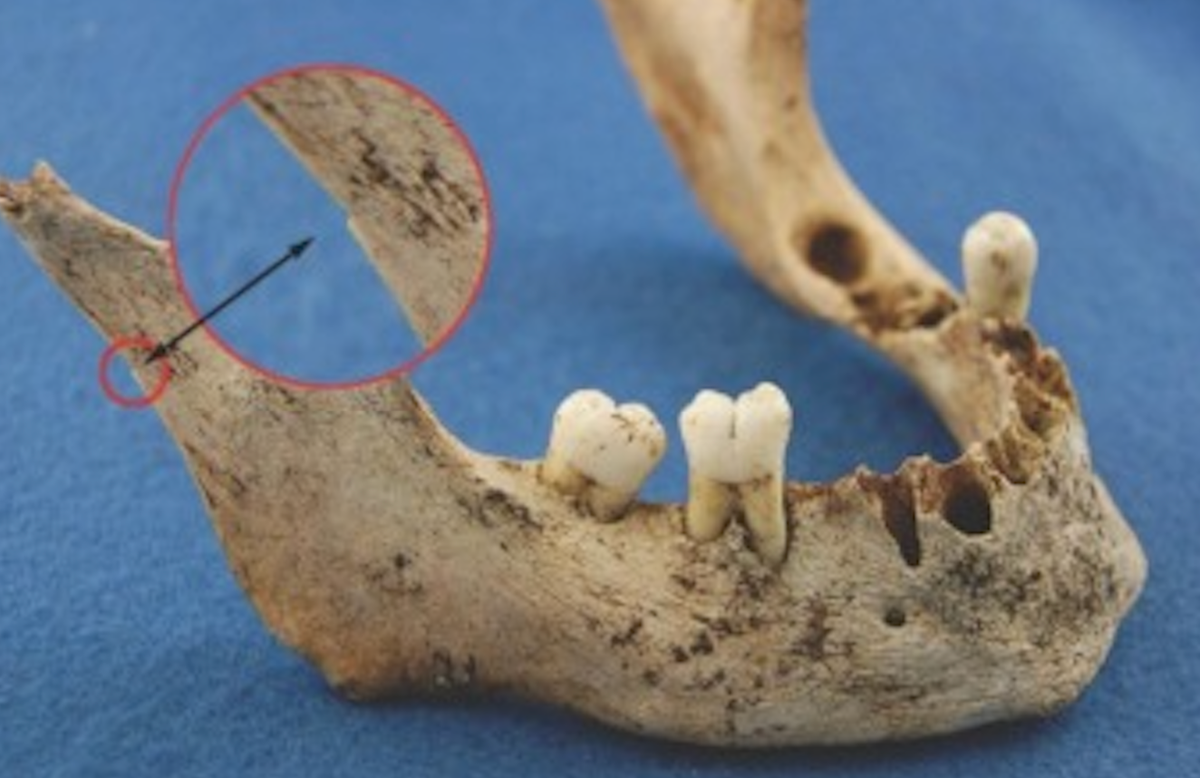
Your support helps us to tell the story
The cannibalised skeletal remains of a member of the doomed 1845 British Arctic expedition have been identified as that of Captain James Fitzjames.
In 1845, Sir John Franklin ventured to find a navigable northwest passage through the Arctic with 129 men aboard ships HMS Terror and HMS Erebus.
Three years later, after their ships were trapped in ice, Fitzjames, the commander of HMS Erebus, led 105 survivors in an attempt to escape the Arctic. None survived.
The ultimate fate of the expedition has remained the subject of widespread interest, sparking many speculative books, articles, and even an acclaimed horror TV miniseries.
Since the mid-19th century, more than 450 bones, belonging to at least a dozen of the sailors, have been found around King William Island, Nunavut.
Now, DNA analysis has revealed that one of the skeletal remains belongs to Fitzjames. This makes the captain the second member of the expedition to be identified after HMS Erebus engineer John Gregory.
“We conclude that DNA and genealogical evidence confirm the identity of the remains as those of Captain James Fitzjames, HMS Erebus,” scientists wrote in a new study published on Wednesday in the Journal of Archaeological Science.
The mandible bone, exhibiting multiple cut marks, suggests that the captain’s body was subject to cannibalism after his death, scientists said.
The identification was made possible thanks to a DNA sample from a living descendant of Fitzjames. The sample matched the DNA from a set of bones unearthed at the King William Island archaeological site.
“The identification of Fitzjames’s remains provides new insights about the expedition’s sad ending,” Douglas Stenton, study co-author from the University of Waterloo, said.
The local Inuit people had told searchers in the mid-19th century they had seen evidence of the survivors resorting to cannibalism – news that shocked Europeans at the time.
In 1997, archaeologist Anne Keenleyside found cut marks on nearly a quarter of the human bones, hinting that at least four of the men who died there were subject to cannibalism.
Fitzjames’s bones join this list with his mandible remains exhibiting multiple cut marks.
“This shows that he predeceased at least some of the other sailors who perished and that neither rank nor status was the governing principle in the final desperate days of the expedition as they strove to save themselves,” Dr Stenton said.
“It demonstrates the level of desperation that the Franklin sailors must have felt to do something they would have considered abhorrent,” University of Waterloo anthropologist Robert Park added.







